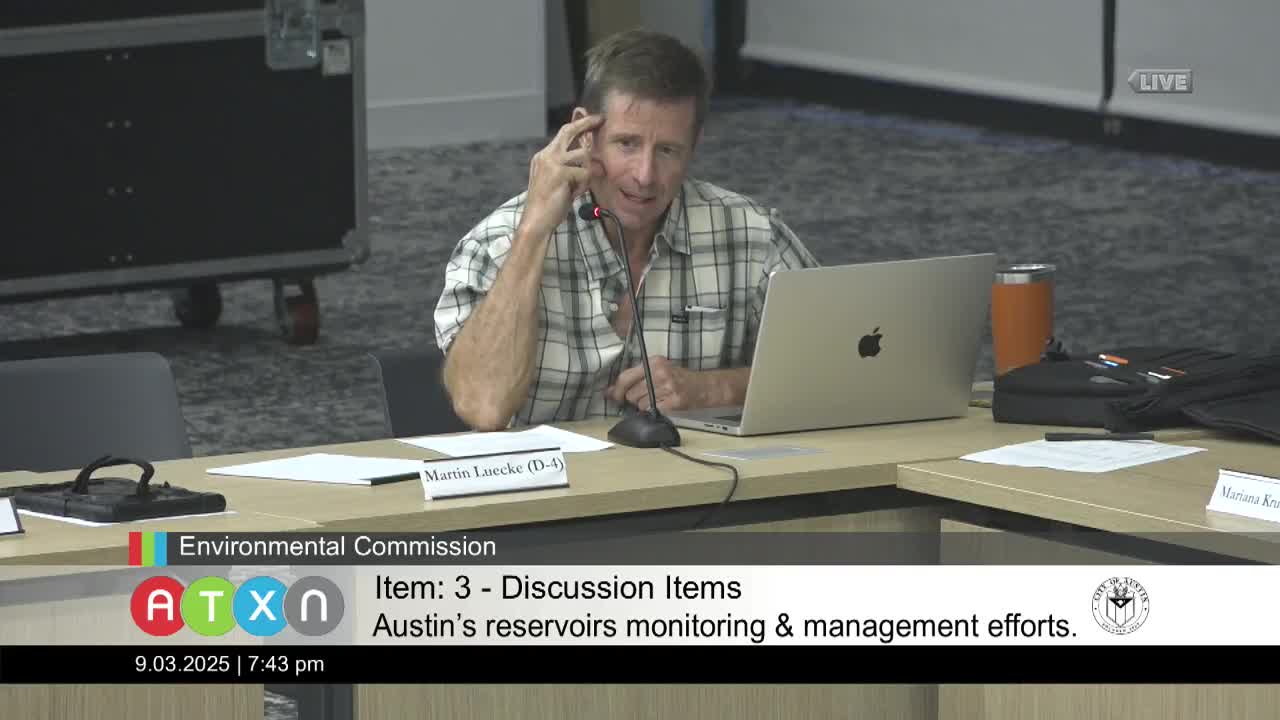Austin Works on Stormwater Management Amid Urban Development Challenges
September 03, 2025 | Austin, Travis County, Texas
Thanks to Scribe from Workplace AI , all articles about Texas are free for you to enjoy throughout 2025!

This article was created by AI using a video recording of the meeting. It summarizes the key points discussed, but for full details and context, please refer to the video of the full meeting. Link to Full Meeting
The discussion began with inquiries about efforts to capture stormwater before it enters local water systems. Officials highlighted the ongoing installation of stormwater control ponds and other measures aimed at treating runoff from new developments and existing urban areas. However, they acknowledged the difficulties of integrating these solutions into Austin's older, built-out neighborhoods, where space is limited.
A significant point of discussion was the collaboration with the Texas Department of Transportation (TxDOT) on the cap and stitch project, which includes the construction of a water quality pond designed to treat stormwater runoff from Interstate 35 before it reaches the Colorado River. This initiative is seen as vital, given that this stretch of highway contributes a substantial amount of untreated impervious cover to the city's water systems.
Commissioners expressed concern about the effectiveness of current strategies, particularly regarding the management of stormwater from highways. Officials explained that while not all runoff can be captured, a portion will be directed into a tunnel system that leads to a pond, allowing for treatment before discharge into the river.
The meeting also touched on the water supply for Walter E. Long Lake, which relies on water pumped from the Colorado River due to the limited capacity of its tributary, Decker Creek. This reliance raises questions about sustainability, especially in light of ongoing urban development.
Commissioner Platt noted the stagnant trend of the Austin Lakes index score over the past decade, suggesting that while the situation may not have worsened, it raises concerns about future water quality as development continues. The officials acknowledged the complexity of predicting long-term outcomes but emphasized the importance of ongoing monitoring and adaptive management strategies.
In conclusion, the meeting underscored the challenges Austin faces in managing stormwater and maintaining water quality amid rapid urbanization. The commission plans to continue exploring innovative solutions and partnerships to address these pressing environmental issues.
Converted from Austin - Environmental Commission meeting on September 03, 2025
Link to Full Meeting
Comments
View full meeting
This article is based on a recent meeting—watch the full video and explore the complete transcript for deeper insights into the discussion.
View full meeting
